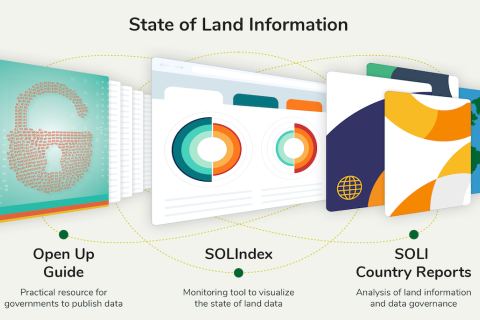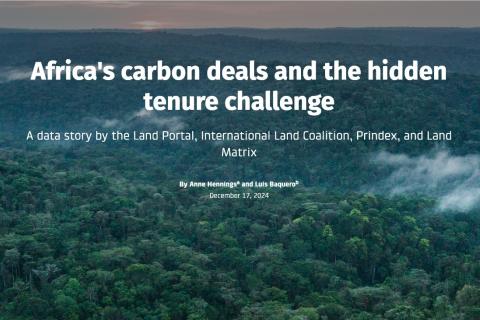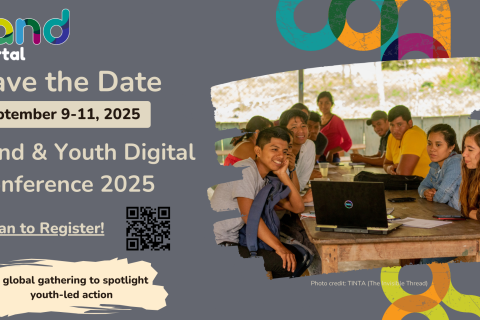Announcements
New launches, project updates, job opportunities, and anything Land Portal.Land Portal Annual Report 2024
The Land Portal Annual Report 2024 celebrates 15 years of championing open, inclusive, and data-driven land governance. In 2024, the platform launched the State of Land Information Index (SOLIndex), expanded global partnerships, and spotlighted community voices through new initiatives like the Open Data Champions and NELGA Guest Writers. With a strong focus on the Global South, the Land Portal continues to empower decision-making through curated knowledge and digital advocacy.
Opportunity: Land Governance Research Consultant for the Arab States
The Land Portal Foundation is seeking a dynamic and highly motivated research consultant to conduct desk research about various land governance issues, as well as on land data governance, with a focus on the Arab States.
Please note the extended deadline: 13 April 2025 at midnight CET.
NEWS: Introducing the State of Land Information Index (SOLIndex)
Africa's carbon deals and the hidden tenure challenge
Observers marked 2023 as a “make-or-break” year for voluntary carbon markets and a key “inflection point” for their role in addressing climate change and global deforestation. Proponents highlight that forest carbon projects channel much-needed funds towards forest protection and are pivotal to climate change mitigation. However, critics emphasize that carbon deals set incentives for over-crediting. Moreover, carbon offsetting allows the biggest emitters to simply outsource their climate mitigation efforts with potentially adverse impacts for affected communities.
Land Portal Events
Dynamic conversations and robust debate. The Land Portal welcomes all voices from around the globe.Land and Youth Digital Conference 2025
The conference will bring together a diverse range of participants, including young Indigenous leaders, practitioners, and surveyors. To make the conference inclusive and truly collaborative, we will co-organize the event with youth organizations, ensuring their perspectives, priorities, and voices directly shape both the agenda and the outcomes.
From Data to Action: Tools to Monitor Corruption, Improve Transparency, and Enable a Just Energy Transition
Land tenure and national carbon frameworks
Exploring sustainable financing of land registration and land governance
The pursuit of effective and inclusive land governance has consistently been hindered by a critical challenge: ensuring the long-term financial sustainability of land services. While technological innovations and increased community engagement have paved the way for progress, many land administration systems still depend heavily on external funding.
Insights
Analysis and perspectives on issues that lie at the heart of land governance challenges.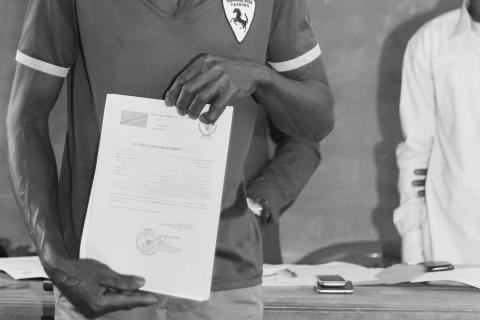
Eastern DRC is home to part of the world's second-largest rainforest after the Amazon, which harbors the last remaining mountain gorillas on the planet. However, this diversity and abundance of natural resources help finance rebellions that are undermining the country and destabilizing the entire African Great Lakes region.

On International Women’s Day, we reflect on the intersection of land rights and gender equity through a compilation of resources featured on the Land Portal’s platform. Women’s access to and control over land is fundamental to achieving sustainable development, economic empowerment, and social justice. However, despite international commitments, structural barriers continue to hinder women’s full participation in land governance.

The past few weeks have been critical (and uncertain!) for those of us fighting for the core principles of accountability, transparency, and due process. The Land Portal is proud to be part of this important work, providing the tools and resources needed to ensure land rights are protected and governance is strengthened through transparency and accessibility.
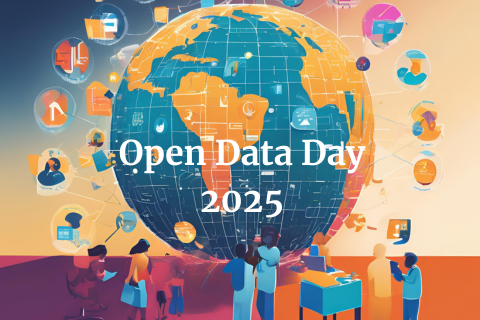
Development organizations that, in principle, support open data should focus more on releasing project-generated data for others to analyze and re-use. Producing written reports in the middle or end of project cycles is good practice, but not enough to maximize the knowledge captured from projects or for independent audits by third parties. This applies particularly to projects with land governance objectives, as governments – the usual custodians of land-related data – are only minimally opening these datasets up to the public.
The newsroom is designed to help visitors get the latest news from the Land Portal. We regularly release announcements and blogs with original insights into land governance, open data, and related issues. To discuss any news release below please contact hello@landportal.info and subscribe to our mailing list here.
New Work
New work from the Land Portal.New Country Portfolio for Algeria
The Land Portal published a new country portfolio for Algeria. The country portfolios examine how countries govern their land, the challenges they face, and the innovative solutions they find to manage land tenure issues. Each portfolio comes with a detailed description of the land governance context and a collection of related blogs, news, publications, statistical datasets and more.
Celebrating the International Day of Forests 2025
Sacred forests in Africa: safeguarding ancestral heritage
Africa's carbon deals and the hidden tenure challenge
Observers marked 2023 as a “make-or-break” year for voluntary carbon markets and a key “inflection point” for their role in addressing climate change and global deforestation. Proponents highlight that forest carbon projects channel much-needed funds towards forest protection and are pivotal to climate change mitigation. However, critics emphasize that carbon deals set incentives for over-crediting. Moreover, carbon offsetting allows the biggest emitters to simply outsource their climate mitigation efforts with potentially adverse impacts for affected communities.



